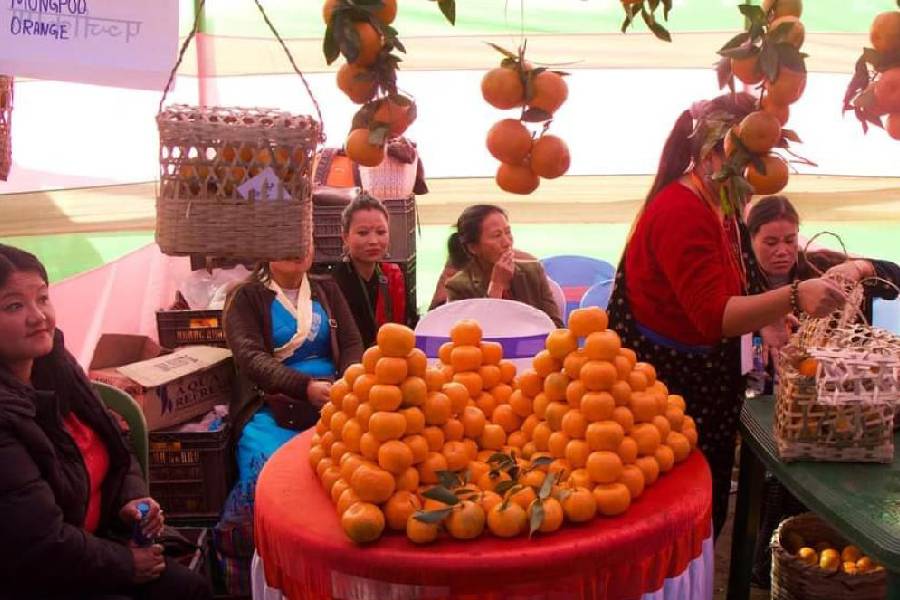The second edition of the two-day orange festival started at Mungpoo, a hamlet in Darjeeling hills located around 52km from here, on Friday.
The event, hosted by the state food processing and horticulture department, has been conceived to revive the famous mandarin oranges of Darjeeling and Kalimpong hills.
Over the years, the yield of the hill oranges, which has enjoyed a huge demand across India and Bangladesh, has declined due to several reasons, including pest attack.
“The festival has been organised to improve the market of hill oranges and augment the production of the winter fruit. We have engaged the directorate of cinchona and other medicinal plants, which functions under the department, to conduct a survey and find orange plants with higher yields. We expect some improvement by next year,” said Subrata Gupta, the additional chief secretary of state food processing and horticulture.
Samuel Rai, the director of cinchona plantations, said that the second and last day of the fest would be held in Sittong, known as the orange village of Darjeeling.
Anit Thapa, the chief executive of Gorkhaland Territorial Administration, who was present at the fest, said: “Orange was considered one of the most economically viable products of the hills. The growers should come forward and take the initiative to increase the yield.”
Gupta said the directorate, during a survey in Darjeeling and Kalimpong districts, identified 1,100 high-yield orange plants.
“We will use these trees to make new grafts. Those will be distributed among farmers. It is a long process but eventually, we feel, it would improve yield in orange plantations,” he said.
He said experts from Uttarbanga Krishi Vishwavidyalaya, and the Citrus Fruit Research Institute based in Nagpur, are working to revive oranges in both hill districts.
“We have to develop disease-free orange grafts and provide technology like inarching (a technique of making grafts) to revive orange plants,” said Gupta.
In the hills, oranges are grown over 4,150 hectares. So far, the department has distributed around 45,000 saplings to orange growers and provided them with expertise on cultivation.
In the last season, around 39 metric tonnes of oranges were produced in the area.
Along with oranges, the department is also working on orchid and mushroom cultivation.
“Both these cash crops have a steady demand and farmers can make decent earnings,” said an official.











